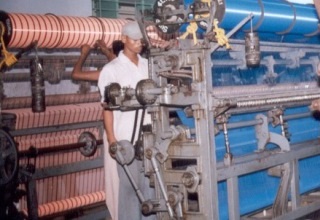ADB to support Kerala's skill programme; 2,34,000 students to benefit
Updated: Nov 28, 2014 02:16:17pm

The move is an initiative of the Government of Kerala to increase the employability of higher secondary and undergraduate students by way of providing opportunities to improve their English fluency and IT skills, and to learn market relevant, in-demand vocational skills outside regular school hours, an official release from the Ministry of Finance said.
The agreement was signed by Joint Secretary, Department of Economic Affairs, Ministry of Finance, Tarun Bajaj on behalf of the Government of India and Country Director ADB, M Teresa Kho on behalf of the Asian Development Bank, and Chief Executive Officer (CEO), ASAP, Higher Education Department on behalf of the Government of Kerala, M T Reju.
The USD 100 million loan for supporting Kerala’s Additional Skill Acquisition Program (ASAP) is the first Results Based Lending (RBL) facility from ADB in India.
Key outputs of market-relevant vocational training introduced in post-basic education; enhanced access to quality vocational training; increased awareness and facilitation of private sector participation as also improved program management and monitoring and evaluation would be considered for disbursement of due amounts, it said.
Speaking on the occasion, Bajaj said that the RBL modality, the first time being used in India, will reinforce country systems, incentivize results, and reduce transaction costs. The loan provides a replicable model for other States that are facing the problems of low youth employability and high unemployment, he added.
On the other hand, Kho said that by offering 180 hours of foundation training in communication English and basic IT, and 120-520 hours of vocational training to high school and undergraduate students, after class and during vacations, ASAP will make them “market ready” by the time they graduate.
In addition, a capacity building technical assistance (TA) of USD 1.5 million, financed by the Japan Fund for Poverty Reduction (JFPR), was also signed on this occasion.
The ASAP Secretariat has been engaging closely with industry associations and sector skills councils in identifying market-relevant courses, designing the curriculum and training methods, identifying internship, and placement opportunities. It has already enrolled more than 16,000 students and started offering vocational training in 70 market-relevant courses. (KNN/ES)












